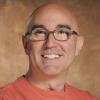F1000 Faculty win top prizes in Israel and Germany
| 20 January, 2016 | Eva Amsen |
|

|
The Wolf Prize in Israel and the Paul Ehrlich and Ludwig Darmstaedter Prize in Germany are both prestigious awards that are sometimes used as indicators of potential future chances of a Nobel Prize. We’re therefore very proud to find F1000 Faculty among this year’s winners of both prizes!
Stuart Schreiber, Head of Faculty for Chemical Biology, and Lewis Cantley, Section Head for Cell Signalling, have both won a shared Wolf Prize this year. The prize is awarded annually by the Wolf Foundation in Israel, to support the work of outstanding individuals in select fields, internationally.
 Schreiber is Director of Chemical Biology and Founding Member of the Broad Institute of Harvard and MIT, where he is a Howard Hughes Medical Institute Investigator. He is also the Morris Loeb Professor of Chemistry and Chemical Biology at Harvard University. Schreiber shares the Wolf Prize in Chemistry with Kyriacos Nicolaou. With this prize, he is recognized for chemical insights into the logic of signal transduction and gene regulation, and for advancing chemical biology and medicine through the discovery of small-molecule probes.
Schreiber is Director of Chemical Biology and Founding Member of the Broad Institute of Harvard and MIT, where he is a Howard Hughes Medical Institute Investigator. He is also the Morris Loeb Professor of Chemistry and Chemical Biology at Harvard University. Schreiber shares the Wolf Prize in Chemistry with Kyriacos Nicolaou. With this prize, he is recognized for chemical insights into the logic of signal transduction and gene regulation, and for advancing chemical biology and medicine through the discovery of small-molecule probes.
 Lewis Cantley shares the Wolf Prize in Medicine with Harvard’s Ronald Kahn. Cantley is the Margaret and Herman Sokol Professor and Director of the Sandra and Edward Meyer Cancer Center at Weill Cornell Medical College/New York Presbyterian Hospital. His discovery of phosphoinositide-3 kinases and their roles in physiology and disease earned him his share of the prize.
Lewis Cantley shares the Wolf Prize in Medicine with Harvard’s Ronald Kahn. Cantley is the Margaret and Herman Sokol Professor and Director of the Sandra and Edward Meyer Cancer Center at Weill Cornell Medical College/New York Presbyterian Hospital. His discovery of phosphoinositide-3 kinases and their roles in physiology and disease earned him his share of the prize.
 In Germany, the Paul Ehrlich and Ludwig Darmstaedter Prize was awarded to Jim Allison, Chair of Immunology at MD Anderson and F1000 Section Head for Immunomodulation. Allison received the award for his pioneering work in treating cancer by interfering with T-cells. His work has led to development of the drug ipilimumab, which has reverted late-stage melanoma in many patients. Allison shares this year’s Prize with Carl June.
In Germany, the Paul Ehrlich and Ludwig Darmstaedter Prize was awarded to Jim Allison, Chair of Immunology at MD Anderson and F1000 Section Head for Immunomodulation. Allison received the award for his pioneering work in treating cancer by interfering with T-cells. His work has led to development of the drug ipilimumab, which has reverted late-stage melanoma in many patients. Allison shares this year’s Prize with Carl June.
Schreiber, Cantley and Allison have all been involved with F1000 since we started fifteen years ago, and we’re pleased to see them continue to achieve such high honors in their respective research careers. Congratulations!

|

